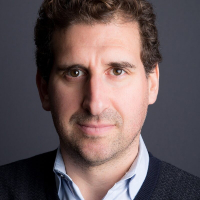EM FOCO
Jesse Eisinger

Interview with Jesse Eisinger
Senior Reporter and Editor at ProPublica Newsroom. The Pulitzer Prize winner and author of the best seller The Chickenshit Club: Why the Justice Department Fails to Prosecute Executives.
August, 2020
What is your opinion on the DOJ performance in relation to corporate crimes? Since your book’s publication (“The Chickenshit Club: Why the Justice Department Fails to Prosecute Executives”) has there been any change in the practices of the Justice Department? Did the Trump administration influence in this matter?
The DOJ has lost the will and ability to prosecute top corporate criminals—and that understates the matter. It’s not just about the financial crisis and not just about the big banks. This problem was building before the 2008 financial crisis and persists through today. We’ve lost the will and ability to prosecute top corporate executives from not just big banks, but pharmaceutical companies, industrial companies, tech companies. The list goes on. And in the last few years during the Trump Administration scandals we have seen that there are actually whole swaths of the economy are going unpoliced in white collar world. Think about high-end real estate, political lobbying, high-end tax fraud, and campaign finance.
Since the book, things have gotten markedly worse. The Trump Administration has essentially gone on a prosecutorial and regulatory strike. White collar prosecutions are at all-time lows.
In your opinion, would there be an excess of formalization of agreements (DPA or/and NPA) between the DOJ and the companies or/and executives investigated for corporate fraud (or misconduct)?
Yes, the DPAs and other settlements are a problem. They substitute the appearance of accountability for actual accountability. The companies settle for money and have no other significant consequences. It’s a cost of doing business for them. And the settlements don’t deter corporate crime. We know this because we see recidivist corporations that make multiple settlements and continue to break the law and the rules.
With a large occurrence of agreements (DPA/NPA) has the ability of US prosecutors to litigate in criminal justice weakened? Is it still true?
The other problem with DPAs is that they led to an erosion of skillset. Prosecutors are losing the skill set to do investigations of individual executives. If you’re expecting a settlement with a corporation, it’s not the same kind of investigation that you would proceed with if you were investigating an individual. It’s going to take much more time to investigate an individual, and you’re going to have to prepare for a fight, because an individual is going to fight much more than a corporation.
Prosecutors are afraid of court and trials, especially against well-funded adversaries. Part of the reason is that it’s risky—they could lose and suffer adverse career consequences. Part of that is that they have much less experience. Prosecutors in the 1970s did around 8 trials a year. Now they do about 0.25 trials per year.
Due to the power of large corporations, what would be the best strategy for criminal prosecutors in the face of suspected criminal offenses?
This is a highly complex problem with many solutions. Here are some of my proposals:
1. Refocus on prosecutions of the high-level culpable individuals. Not as an adjunct to settlements, but as the fundamental mission.
2. Investigate differently: focus on flipping low-level execs, using aggressive tactics.
3. Hire differently.
Diversify geographically, away from the elite law schools. Hire people with a much more diverse professional experience. Hire refugees from corporate defense firms, who are not going to go back. Hire plaintiff’s lawyers and public interest lawyers and public defenders. Higher older people, not only mainly the young.
4. The DOJ should develop more aggressive use of statutes like willful blindness and scheme liability/conspiracies.
5. More policy thinking
The DOJ needs to analyze what statutes have changed, what practices have changed and how it should address these changes.
6. Go to Congress about gaps in law.
7. Demand more resources.
Prosecutors should be paid in a way allows them to lead affluent lifestyles in the most expensive cities in America. I put that at $450,000 for top performers.
8. Corporate settlements should be regarded as a very last resort and only used on special occasions.
9. Reject using internal investigations.
The dirty little secret of corporate law enforcement in America today is that we have outsourced and privatized it to the companies themselves. Companies police themselves by hiring prestigious law firms to conduct investigations. The law firm’s incentive is not to root out executive wrongdoers but rather to insulate them and secure more of this lucrative investigative work for the future. Prosecutors are overly reliant on these investigations.
Corporations should conduct any internal investigations they want. The DOJ needs to break its reliance on them.
This requires a wholesale reinvigoration of the investigative capacities of not just the FBI but the financial and corporate regulators: OCC, FDIC, Fed, SEC, FDA, OSHA, etc.
The agreements and leniency strategy were disseminated from the USA to other countries. How do you see the “exportation” of this model of criminal prosecution?
Yes, I’ve seen this in the UK. I don’t know much about the practices being exported elsewhere. I think it’s largely being done because it’s easier to reach a settlement for money with a corporation than to prove a criminal case. But that doesn’t mean settlements are good ideas.
In Brazil, recent legislative reforms have expanded the possibility of prosecutors to make deals similar to US law. What should we do to avoid making the same mistakes?
See my solutions list. The practice needs to emphasize prosecuting individuals and avoid letting corporations police themselves.
